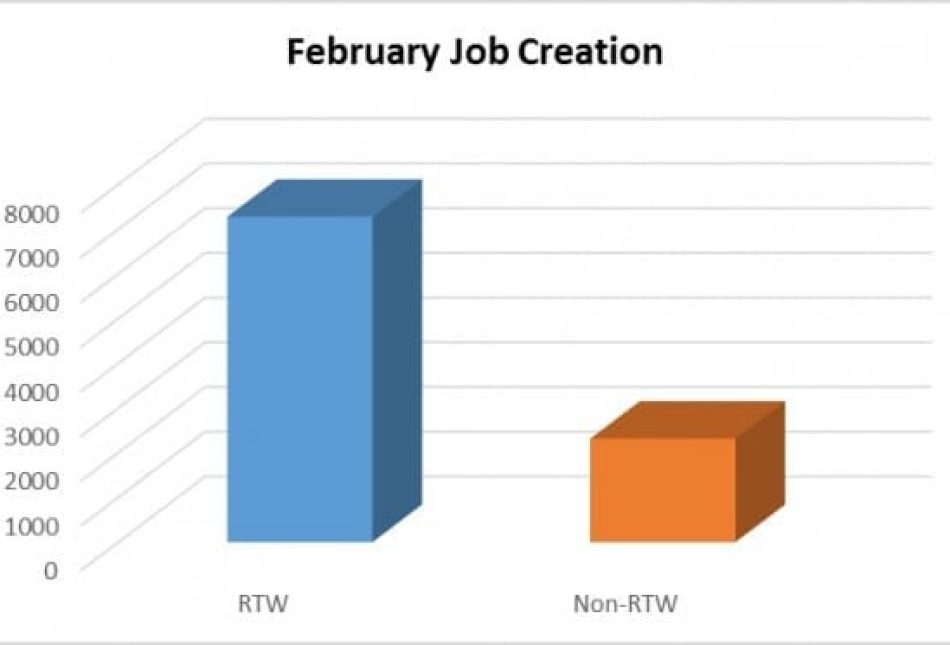How Long Can Right to Work Reality Be Denied?

The Senate Public Affairs Committee’s tabling of the right-to-work bill sponsored by Sen. Mark Moores (R-Albuquerque) comes at a particularly disastrous time for New Mexico. Unemployment is rising, layoffs are mounting, and the fiscal picture is darkening.
RTW is a key piece of a broader package of pro-growth reforms that must be implemented to finally build a vibrant and sustainable private sector in the state. The Foundation recently completed 12 months of analyzing job-producing investments announced by Area Development magazine.
Overall, jobs in RTW states claimed 77.8 percent of all positions to be created:
RTW states prevailed in each of the 12 months:
We also examined “border crossing,” in which investments were made by companies based in one type of state shifting to another. (For example, in December, CVS announced the hiring of 500 “pharmacists, pharmacy technicians and administrative staff” for a new facility in RTW Florida. The corporation is headquartered in non-RTW Rhode Island.) RTW bested non-RTW, 172 to 43.
Foreign direct investment also prevailed in RTW states, by a wide margin. Companies based abroad announced 186 investments in worker-freedom states, as opposed to 65 in compulsory-unionism states.
The Foundation now has a full year of data, and will be refining our findings to further probe why RTW is so attractive to companies and industries in manufacturing, logistics, finance, IT, biotech, and business services. For any New Mexico lawmaker who doubts the value of RTW, we’re happy to explain what we’ve found so far.

